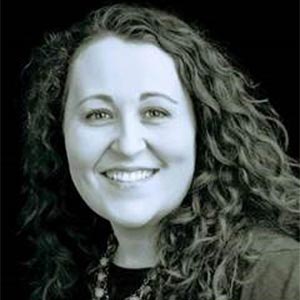Feeding and Swallowing in the Schools

— Offered by Communication Sciences and Disorders Program —
Program guidelines for the IDEA, Section 504’s Free and Appropriate Public Education, USDA food service guidelines and common local and state regulations will be reviewed and discussed. Linking guidelines gives therapists an argument for addressing and serving students with atypical oral motor patterns related to nutritional intake. The breakdown of educational versus medical interventions for appropriate school-based services will be explored. Funding at the state and national level is given based on rules and regulations that are vague, at best. For this presentation, the essential points that relate to school-based therapy will be identified and linked to our role. When examined as parts of a whole, a better understanding can be achieved. Designing a plan ensuring each child is fed and participating in meal opportunities improves outcomes.
Multidisciplinary teaming offers a dynamic approach to serving students. Through teaming, each disciplinary area can be addressed to provide students with appropriate programming. As a team leader, the SLP will identify team members and roles to best meet the needs of the school and the child. Through implementing practices aligned with state regulations for speech and language impairment, teams will also review and address assistive technology and its relation to feeding and swallowing.
$25 each part
Recorded Webinar
U of A 10% discount available - view details
Webinar Part One
Traditionally dubbed medical, feeding and swallowing issues are not common educational therapy goals. FAPE and IDEA guarantee educational equality. School therapists must choose between addressing safe feeding for students versus educationally appropriate IEP goals. This course will provide insight into building a school dysphagia team by changing the course of addressing assistive technology and goals related to feeding at schools.
Learning Outcomes
- Identify how feeding and swallowing interventions relate to FAPE, IDEA, and Arkansas Standards for Special Education.
- Identity possible referral characteristics for students with feeding and/or swallowing disorders.
- Identify how feeding and swallowing interventions are relevant to educational skills.
- Identify the definition of assistive technology related to feeding and swallowing.
Webinar Part Two
FAPE and IDEA guarantee educational equality. School therapists must choose between addressing safe feeding for students versus educationally appropriate IEP goals. This course will provide insight into writing and implementing goals for feeding and swallowing in the school setting. This course will also provide insight into documenting progress for us of assistive technology related to feeding and swallowing.
Learning Outcomes
- Identify vital team members and their roles for appropriately addressing feeding and swallowing needs on an IEP.
- Demonstrate understanding of need and process to create a process and forms for use.
- Demonstrate understanding of the SLP's role in writing and implementing goals within the school setting,
- Identify best practices in documenting assistive technology related to feeding and swallowing compliance within the school setting.
Instructor

Vanessa Boomer, Ed.S., CC-SLP
Vanessa Boomer is a leader focused on the trends and issues impacting special education, bringing more than 16 years of experience to her role as Lead Special Education Facilitator for Arkansas’ Bentonville Schools. Vanessa is focused on the coordination of district resources to support proper assessments, development and implementation of behavior intervention and speech therapy treatment plans.
CEU / Professional Development

Disclosures - Non-financial: none to report; Financial: speaker is receiving an honorarium.
